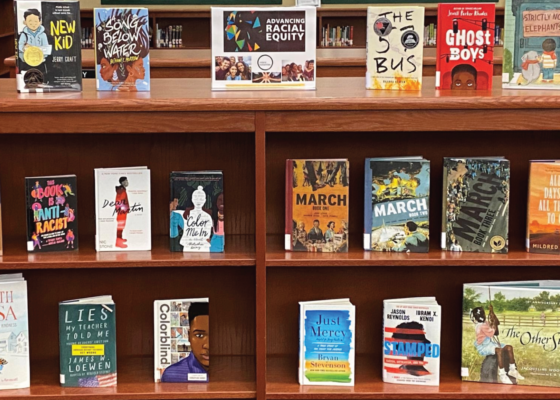Can Learning Be Saved?
June 30, 2010The Flickering Mind poses challenging questions for our institutions and for our lives. Just because we are bombared with wireless waves of information does not mean we are learning more or better than if we simply sat down and read a book. As Indianapolis decides the future of its books, here is one that makes an excellent case for their relevance in the twenty-first century.
This What-Are-You-Reading-Wednesday post was written by Josh Eskew, a former Indiana Humanities Council intern.
The city’s struggle to determine the future of its public libraries invites us to consider a larger question: How do books affect learning? Our age boasts a 60 milisecond news cycle and Internet connections which threaten to surpass the speed of light, so it seems a bit antiquated to indulge in such a slow activity as reading. Todd Oppenheimer challenges us to seriously consider the role of books in our lives and learning as we navigate life according to today’s supersonic pace. His book, The Flickering Mind: The False Promise of Technology in the Classroom and How Learning Can Be Saved presents an argument as ambitious as its subtitle, namely, that the overabundance of fast-paced technolearning has significantly damaged the quality of education in American schools. As residents of Indianapolis attempt to negotiate their need for brick and mortar libraries when information can be most easily stored on a disk, Oppenheimer’s book will prove a valuable resource.
No one doubts that digital media has supplanted the book, the letter, and the blackboard as our culturally dominant mode of communication. Oppenheimer asserts that while digital media has an important and indisputable role in learning, it has been misused and missold to the American public as a panacea for all of our many deficiencies in education. Excessive emphasis on computers, smartboards and software has resulted not only in the marginally tragic epidemic of poor penmanship, but a generation of students who do not read, write or think at the levels our society demands. Oppenheimer reviews the history of technology in the classroom before visiting schools throughout the country to profile of technology’s influence in institutional education. Through well-documented research, personal interviews with teachers, and an inside look at the industry of educational technolog, Oppenheimer makes a compelling case for schools to get back to basics: books, pencils and paper.
One episode stands out as emblematic of of Oppenheimer’s thesis. While visiting one school, he sits on a series of presentations about U.S. History. After class, he approaches a student whose presentation wowed the class but struck Oppenheimer as a little short on substance. He asks him how long he spent on the project. The student replies that he spent about fiteen hours on the project: about five on research and information, and the other ten tweeking the graphics on his PowerPoint. The problems of the techo-paradise paradigm in education affect schools both very rich and very poor, and Oppenheimer walks through the high-tech halls of a California charter school to the dirty sidewalks of a Harlem high school to illustrate how too much tech and not enough imagination has impoverished the minds and motivation of students.
As all who challenge a dominant paradigm, Oppenheimer must walk a fine line between idyllic dreaming and austere condemnation. While I expected him to present an a warm, fuzzy picture of education’s past rife with one-room school houses and students lightyears more eager than our own, his insightful history traces the problem back as far as the turn of the 20th century. His battle for the schools is neither new nor easy, and as radio, television and computers developed, a whole host of educational dilemmas popped up. He does not long for some fantasy where teachers have banished digital technology from the classroom. Indeed, digital technology has a huge role to play in education, and it is highly significant that the contents of a many libraries can fit onto a hard drive. While Oppenheimer excels at walking the rhetorical tight rope, he succeeds the most, when he addresses who the problem really effects: students.
The Flickering Mind poses challenging questions for our institutions and for our lives. Just because we are bombared with wireless waves of information does not mean we are learning more or better than if we simply sat down and read a book. As Indianapolis decides the future of its books, here is one that makes an excellent case for their relevance in the twenty-first century.


